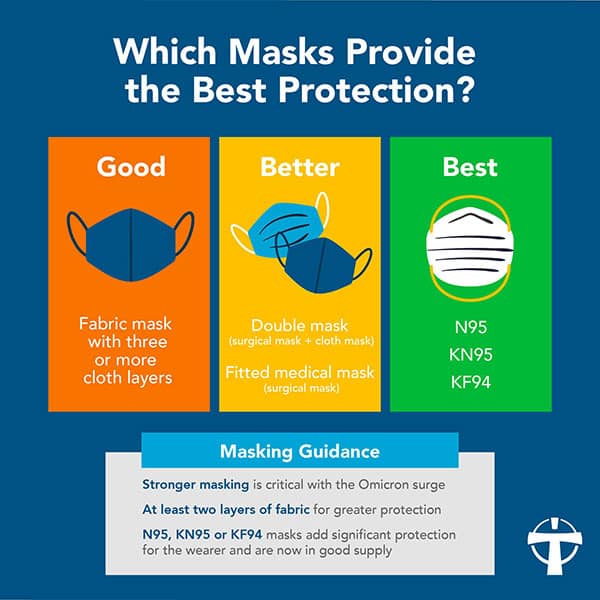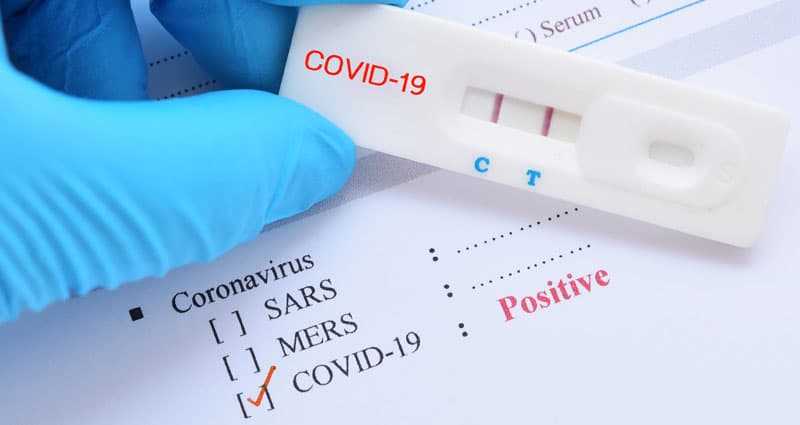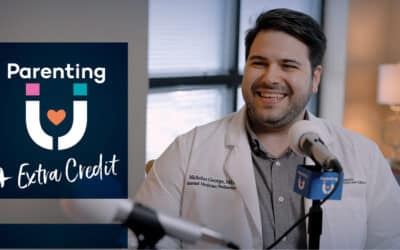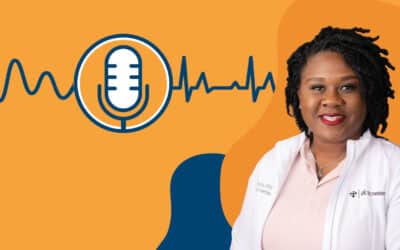When you get a positive COVID-19 test, you need to know your next steps and how to feel better. A positive test confirms you have COVID-19 and may be able to spread it to others.
Rebecca Curran, MD, PhD, family medicine doctor and epidemiologist with Lourdes Physician Group, shares what she recommends her patients do when they get a positive test.
What To Do to Treat COVID-19 at Home
- Use acetaminophen (Tylenol) as needed for pain and fever
- Rest as much as possible
- Get plenty of fluids
- Sleep on your stomach if possible. Spending time on your stomach can help your lungs to move air in a way that may lessen some of the lung problems caused by COVID-19
- Avoid cigarette smoke as much as possible
For low-risk patients, a medicine called fluvoxamine has a possible benefit for COVID-19 patients experiencing mild symptoms. Patients who are feeling shortness of breath may also benefit from a budesonide inhaler until they start feeling better.
For high-risk patients, those 65 and older or who have health conditions such as diabetes, high blood pressure or body mass index > 25, new treatments such as the pill Paxlovid or IV antibody infusions have been shown to be helpful. However, as of mid-January 2022, the supply of these medicines in Louisiana is unreliable.
Steroids were used earlier in the pandemic for patients outside the hospital, but newer data shows this can actually increase your risk of complications as you recover at home. Unless you have a medical condition such as asthma or COPD that benefits from steroids, your provider will likely stay away from adding new steroids.
Follow-Up Care
If your symptoms are more than mild, we recommend setting up a video or telephone visit with your provider every few days until you are feeling better. You can connect with one of our skilled primary care providers here.
If you are having difficulty breathing or other symptoms which concern you, please go to the emergency department.
How Long Am I Contagious?
You are possibly contagious for 10 days from your positive test. You will need to wear a mask when around others for the entire 10 days. People are most contagious in the first five days. Because there is so much COVID-19 circulating in our community and so many people are being asked to isolate at home, the CDC has shortened the isolation period to five days as long as you mask for the full 10 days.
If you have an immune system problem or are not feeling better, please talk with your primary care provider about when it is safe to be around others.
How Can I Keep from Spreading COVID-19 to Others in My House?
- Wear a mask always when you are awake no matter who is around. (If you are having trouble breathing, do NOT do this step.) Please do this for 10 days from your positive test.
- Anyone in the same indoor space as you should wear a mask whenever possible while awake.
- Keep the space you are in as well ventilated as possible. If the weather allows, open the window. If windows are closed, set your thermostat to “fan on” to improve ventilation and air filtering. If you have access to a HEPA filter, keep it in the room with you.
- You and everyone in the household should wash hands as much as possible.
Who Else Should Get Tested?
Anyone exposed to you starting from two days before you first felt sick was potentially exposed to COVID-19 and could now be infecting the people around them. We strongly recommend they wear a mask when around others for 10 days, whether they have symptoms or have gotten the vaccine.
An “exposure” is defined as being within six feet of you for more than 15 minutes over the course of a day, regardless of whether masks were worn.
Close contacts with symptoms should get fast COVID-19 testing now and talk with their doctor about what to do next.
Close contacts who are up to date on their COVID-19 vaccines and have no symptoms should mask for 10 days when around anyone else. They should get tested for COVID-19 now and again five days after exposure if tests are available. As long as they are feeling well and these tests are negative, no quarantine is necessary.
Unvaccinated close contacts or close contacts who are overdue for their booster but have no symptoms should mask for 10 days when around anyone else. Please get tested now and again five days after exposure if tests are available. They should quarantine for five days from exposure regardless of the results of the first test.
What If I Cannot Isolate from Others in My Home?
In some situations, such as when caring for children, full separation may not be the right choice for your household. If you aren’t fully isolating from others, the timeline for when everyone else should quarantine and mask lasts the entire time you are contagious and only then starts the five-day countdown clock. This can be confusing to calculate, so please talk with your provider about your personal situation.
Am I Immune to COVID-19 After I Recover?
Unfortunately, we do not know if or for how long people who have been infected with COVID-19 are immune. We recommend that everyone continue to wear a mask when indoors outside your own home while COVID-19 rates remain high in our community. Masks such as surgical masks, KN95s and N95s provide more protection than cloth masks, but any mask provides at least some protection.

We do recommend that people who have recovered from COVID-19 still get vaccinated or finish getting vaccinated if they were in the middle of that process. When your symptoms have resolved, you can get vaccinated or continue your vaccination series. However, if you received a monoclonal antibody IV treatment for COVID-19, you must wait 90 days after your infusion to get any COVID-19 vaccines. You do not need to “start over” or get extra shots just because you have recovered from COVID-19.




